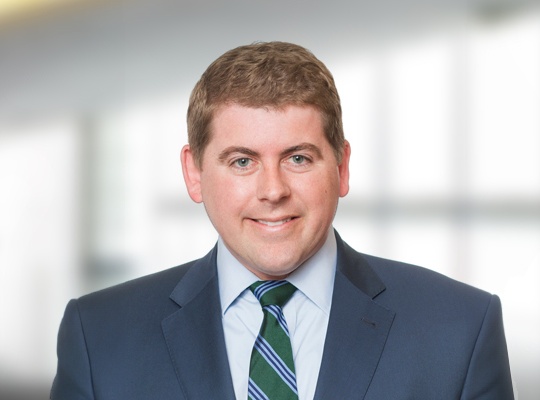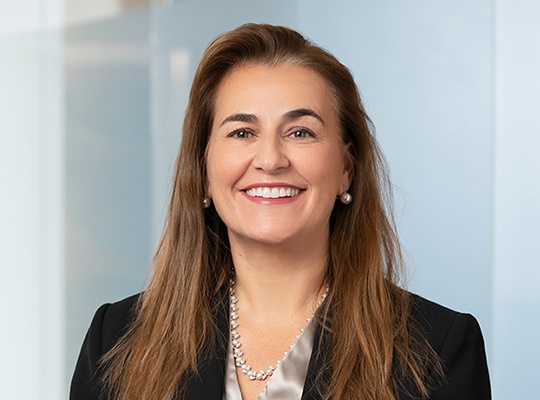Standing Question Prevents Clarity from Justices on “Cy Pres” Class Action Settlements
Key Takeaways
- A cy pres-only settlement, designed to indirectly benefit class members, while class counsel and named plaintiffs receive monetary awards, recently came under scrutiny before the Supreme Court.
- A jurisdictional Article III standing issue (post-Spokeo) prevented the Justices from assessing whether cy pres settlements alone “satisfy the requirement that class settlements be ‘fair, reasonable, and adequate’” consistent with Federal Rule of Civil Procedure 23.
- The Court made clear that a class action settlement cannot be approved absent a determination that the court has jurisdiction over the matter.
- Critics of cy pres settlements can find support from Justice Clarence Thomas, who dissented from the per curiam opinion and conveyed his belief that cy pres settlements “are not a form of relief to the absent class members and should not be treated as such.”
- Prior to agreeing to class-wide settlement, defense counsel should ensure that all possible challenges have been exhausted, paying particular attention to standing in light of the Court’s Spokeo decision.
In Frank v. Gaos, plaintiff Paloma Goas brought a class action alleging that Google’s transmission of users’ search terms violated the Stored Communications Act, 18 U.S.C. § 2701, et seq. (“SCA”). The SCA creates a private right of action that allows any “person aggrieved by any violation” of the statute to “recover from” the entity that “engaged in th[e] violation such relief as may be appropriate.” § 2707(a). The SCA also prohibits an entity from “knowingly divulg[ing] to any person or entity the contents of a communication while in electronic storage by that service.” § 2702(a)(2).
Google challenged Plaintiff’s standing in the district court multiple times, but was ultimately unsuccessful. At the same time, the bar anxiously awaited rulings from the Ninth Circuit and the Supreme Court regarding standing. See, e.g., Edwards v. First American Corp., 610 F.3d 514, 517 (9th Cir. 2010), cert. dismissed as improvidently granted, 567 U.S. 756 (2012) (holding that “[t]he injury required by Article III can exist solely by virtue of statutes creating legal rights, the invasion of which creates standing”); Spokeo v. Robbins, 136 S. Ct. 1540 (2016).
The parties eventually negotiated a US$8.5 million class-wide settlement in which Google agreed to include certain disclosures on some of its webpages and would distribute more than US$5 million to cy pres recipients and more than US$2 million to class counsel and the class representatives. Absent class members would receive no monetary award.
The use of cy pres awards has come under increasing scrutiny in recent years. “In the class action context, cy pres refers to the practice of distributing settlement funds not amenable to individual claims or meaningful pro rata distribution to nonprofit organizations whose work is determined to indirectly benefit class members.” Slip. Op. at *4, 586 U.S. ___ (2019) (citing Black’s Law Dictionary 470 (10th ed. 2014)). Supporters of cy pres settlements believe it provides a meaningful mechanism for obtaining hefty settlements from businesses in cases where it can be hard to determine the scope of damages.
The parties jointly selected the cy pres recipients to “promote public awareness and education, and/or to support research, development, and initiatives, related to protecting privacy on the Internet.” Slip. Op. at *4 (internal quotation marks and citation omitted). The District Court approved the settlement over the objections of five class members, who then appealed to the Ninth Circuit. During the pendency of the Ninth Circuit appeal, the Supreme Court issued its opinion in Spokeo v. Robbins, 136 S. Ct. 1540 (2016). Spokeo clarified that a plaintiff may not establish standing by simply alleging a violation of a federal statute, but rather must identify some cognizable real-world harm. In doing so, the Court rejected the Ninth Circuit’s opinion in Edwards and the premise upon which Plaintiff Goas relied to establish standing. Ultimately, however, the Ninth Circuit affirmed the Goas settlement without addressing the newly imposed Spokeo standard or the Court’s rejection of Edwards.
The Supreme Court granted certiorari “to review whether such cy pres settlements satisfy the requirement that class settlements be ‘fair, reasonable, and adequate.’” Slip. Op. at *1 (citing Fed. R. Civ. P. 23(e)(2)). In a per curiam opinion, the Court determined that a threshold jurisdictional question prevented it from being able to rule on the merits. Thus, the Supreme Court vacated and remanded for the lower courts to “consider the standing question anew, applying the standard Spokeo articulated.” Id. at *6.
While the Court did not weigh in on the merits of cy pres settlements, it made clear that Spokeo applies to class action settlements. The Court noted its “obligation to assure [itself] of litigants’ standing under Article III[,]” id. at 5, and that this “obligation extends to court approval of proposed class action settlements.” Id. It emphasized that, “[a] court is powerless to approve a proposed class action settlement if it lacks jurisdiction over the dispute, and federal courts lack jurisdiction if no named plaintiff has standing.” Id. at *6.
Dissenting from the majority, Justice Clarence Thomas urged the court to consider the merits. He argued that cy pres settlements do not conform to Federal Rule of Civil Procedure 23 because they “are not a form of relief to the absent class members and should not be treated as such.” Slip. Op. at *2 (Thomas, J. dissenting). According to Justice Thomas, the lack of any direct benefit to class members from such cy pres settlements suggests that the interests of absent class members are not adequately represented and that the class action structure is not the “superior” method for adjudicating the claims at hand “when it serves only as a vehicle through which to extinguish the absent class members claims without providing them any relief.” Id. at *3 (Thomas, J. dissenting).
The Supreme Court may review another case raising the cy pres issue in the near future. The Court is currently considering a petition for certiorari in Perryman v. Romero, 906 F.3d 747 (9th Cir. 2018), pet. for cert. docketed, (Feb. 15, 2019) (No. 18-1074), in which certain class members argue that the cy pres settlement in that case, which allows leftover funds from a US$38 million settlement to go to universities instead of class members, does not conform to Rule 23.
Although the Justice’s comments about such settlements during oral argument in Frank v. Goas could indicate how they may eventually rule on the issue, the ultimate outcome remains unclear. During oral argument, Justices Kavanaugh and Alito criticized such settlements, saying that they raise “the appearance of favoritism and collusion[,]” and that “the class members get no money whatsoever,” respectively. Justice Ginsburg, presenting a less critical view, said: “[p]ractically, the class members would get nothing, nothing at all, and here at least they get an indirect benefit.”
While the Supreme Court ended up not deciding the issue it granted certiorari to resolve, the Court’s ruling in Frank v. Goas still offers several lessons to class action litigants. First, before agreeing to a class-wide settlement, defendants should vigorously argue and exhaust all available defenses, including standing—at all stages of the litigation. Second, though the Court did not rule on the propriety of cy pres settlements as a general matter, Justice Thomas’ dissent and comments by other Justices during oral argument highlighted obvious concerns regarding their use. As a result, attorneys should take great care in structuring cy pres settlements given the Supreme Court’s criticism of such arrangements.
Read "Standing Question Prevents Clarity from Justices on “Cy Pres” Class Action Settlements."



